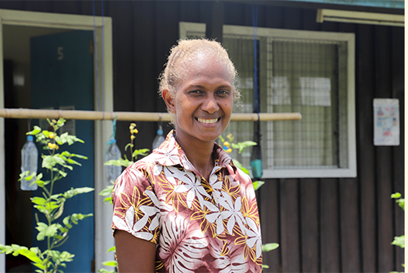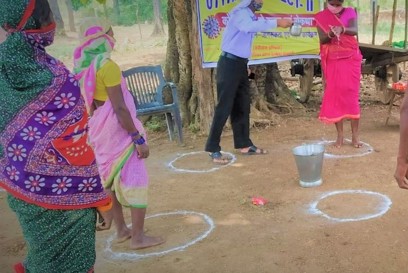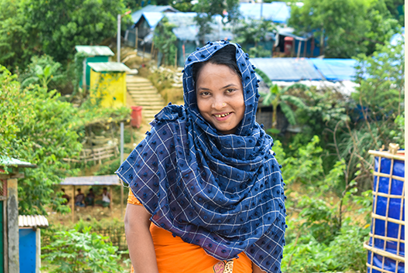Here in Australia we are hearing reports that La Niña is finally weakening and bringing the possibility of relief from the floods, but across the world the Horn of Africa is facing the fourth consecutive year of one of the worst droughts on record. Just as Australia’s flooding has been shattering records, the drought in the Horn of Africa is the worst one yet, even for a region accustomed to drought.
The situation is dire. Most communities have no options left. Their crops have failed, they have no seeds to replant, no water even if they did have seeds, no livestock, and no money.
In southern Ethiopia last year, I met communities where there was no food. I met women who had to walk over 18 hours to collect water (that is not a typo). The water that they carried home after this journey was dirty and made them sick because the drought has killed off the plants that used to filter the water. But there was no other choice – don’t drink and die or drink and be sick.
And then there were the children. I knew as I stood and talked with these mothers that many of their children would die from malnutrition before Christmas. It is hard to reconcile how this can happen in our world today, but it does and here it was right in front of me.
Colleagues in Somalia tell me about seeing children come into their malnutrition clinics with arms the size of a thumb. Mothers and children are walking for two weeks with barely enough strength to get to health facilities. Children are dying on the way and buried on the side of the road so the families can continue, desperately looking for somewhere that they can receive critical humanitarian aid.
These stories are harsh. This situation is brutal. But not doing something about it is inhumane. Twenty-five plus years in this sector and I have not seen or heard of anything like it.
What worries me most is that we know what happens if we don’t act quickly. In 2011, Somalia experienced a devastating famine that killed more than 250,000 people — half of them children under the age of five. This devastating loss of life happened because the international community failed to act in time.
Right now, we’re making the same mistakes. It is estimated that famine will be declared in Somalia by April this year. The technical requirements for famine are complex, so it is possible that it won’t be declared at all. The irony is that once it’s declared it is far too late for many, if not most, and many governments are waiting until the official declaration to act.
Yet famine declarations by definition only happen when vast swathes of a population are already dying from hunger. They require evidence that at least two out of ten thousand people are dying of hunger per day, and at least one third of the population are experiencing acute malnutrition.
Just to put this into perspective, this means that by the time a famine is declared, one in three children are severely hungry. The typical death rates for children under five who reach this point of hunger are around 30-50 per cent, depending on treatment. Essentially, by the time a famine is declared, many children are already dying –from hunger or from diseases as a result of a weakened immune system.
My own boy is only five, and if I imagine these same conditions in his preschool classroom of around twenty children, it horrifies me. This would mean that approximately six of his classmates would be severely hungry, to the point of listlessness, and between two and three of them would be dead.
These rates of hunger in innocent children are unacceptable. And, thankfully, they are preventable. With the right kind of treatment, children experiencing these levels of hunger can and do recover. Lives can be saved, and disasters can be averted.
I often tell people that I’m in the business of hope – hope that the world can become a more equal and just place for everybody, not just a lucky few. And I assure you that with the right efforts, the hunger crisis currently unfolding in East Africa, and many other parts of the world, can be averted.
But we must act quickly. Millions of people are depending on their sisters and brothers across the world to care about what is happening. What they need is for us to be outraged. They need us to act.
- Kirsty Robertson, Caritas Australia's CEO.
This article was first printed in Cath Weekly.
















